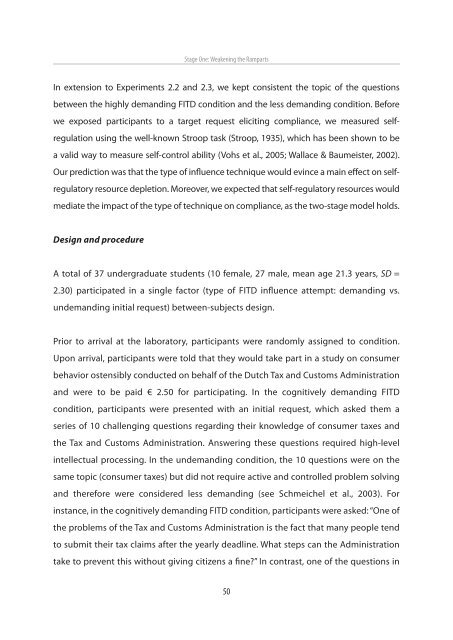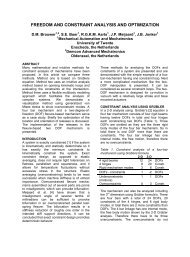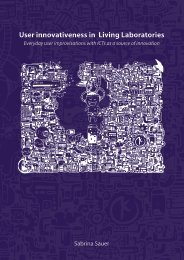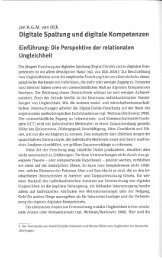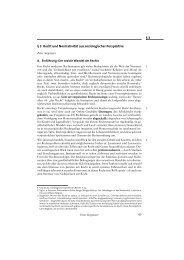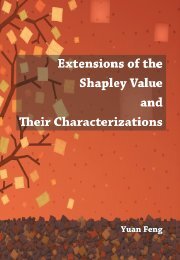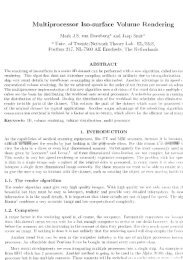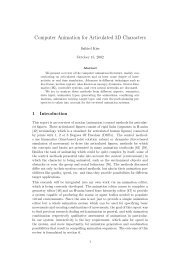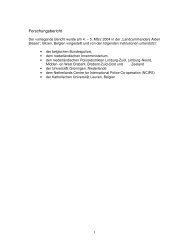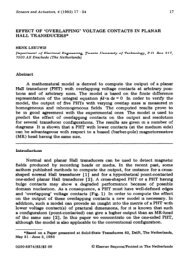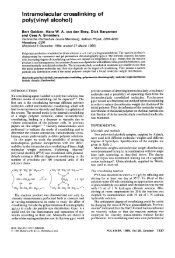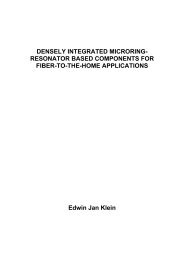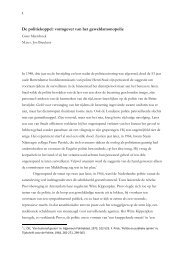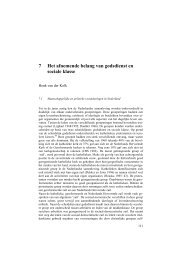Chapter 1 - Universiteit Twente
Chapter 1 - Universiteit Twente
Chapter 1 - Universiteit Twente
Create successful ePaper yourself
Turn your PDF publications into a flip-book with our unique Google optimized e-Paper software.
Stage One: Weakening the Ramparts<br />
In extension to Experiments 2.2 and 2.3, we kept consistent the topic of the questions<br />
between the highly demanding FITD condition and the less demanding condition. Before<br />
we exposed participants to a target request eliciting compliance, we measured selfregulation<br />
using the well-known Stroop task (Stroop, 1935), which has been shown to be<br />
a valid way to measure self-control ability (Vohs et al., 2005; Wallace & Baumeister, 2002).<br />
Our prediction was that the type of influence technique would evince a main effect on selfregulatory<br />
resource depletion. Moreover, we expected that self-regulatory resources would<br />
mediate the impact of the type of technique on compliance, as the two-stage model holds.<br />
Design and procedure<br />
A total of 37 undergraduate students (10 female, 27 male, mean age 21.3 years, SD =<br />
2.30) participated in a single factor (type of FITD influence attempt: demanding vs.<br />
undemanding initial request) between-subjects design.<br />
Prior to arrival at the laboratory, participants were randomly assigned to condition.<br />
Upon arrival, participants were told that they would take part in a study on consumer<br />
behavior ostensibly conducted on behalf of the Dutch Tax and Customs Administration<br />
and were to be paid € 2.50 for participating. In the cognitively demanding FITD<br />
condition, participants were presented with an initial request, which asked them a<br />
series of 10 challenging questions regarding their knowledge of consumer taxes and<br />
the Tax and Customs Administration. Answering these questions required high-level<br />
intellectual processing. In the undemanding condition, the 10 questions were on the<br />
same topic (consumer taxes) but did not require active and controlled problem solving<br />
and therefore were considered less demanding (see Schmeichel et al., 2003). For<br />
instance, in the cognitively demanding FITD condition, participants were asked: “One of<br />
the problems of the Tax and Customs Administration is the fact that many people tend<br />
to submit their tax claims after the yearly deadline. What steps can the Administration<br />
take to prevent this without giving citizens a fine?” In contrast, one of the questions in<br />
50


